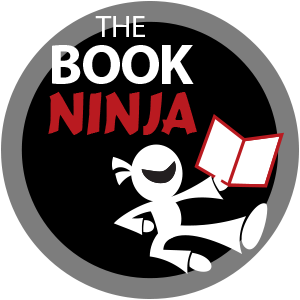As an author, I am constantly searching the Internet, reading interesting things, and searching for new inspiration. While using my favorite search engine, I stumbled upon a blog post by Bob The Teacher entitled, “Would You Rent An Office From Your Employee?” It described the normal, and sometimes complicated relationship between a website owner and a Webmaster, and what to do when problems or disagreements arise.
And it got me thinking. In some respects, the relationship that an author has with his or her publisher is not much different. A publisher is hired by an author to print, market and distribute the author’s book. Essentially, you are placing your business in the hands of someone who has to keep track of their interests, the interest of other competing authors and yours. It’s as if an employee was working on the side for a direct competitor. By any stretch of the imagination, that can’t be good for business.
Even if your publisher doesn’t complete a W-2 form or other tax information on your behalf, by the very nature of the business, they do work for you. They are responsible, in part, for the printing, distribution and marketing (some) of your book—your masterpiece. So the question becomes of course, if they are responsible for between 50 and 100 books per year, how much time and effort are they truly devoting to your book?
The simple answer, of course, is not enough. That being said, you can’t really blame them for being spread thinner than you might like. After all, publishers need to have a number of different authors in order to stay viable as a business. If one author flops, they need to have three or four more to make up the difference and keep their financial records in the black. However, there should be a minimum amount of attention that is paid to your book and your situation. If you feel like you’re being left in the dust, chances are it’s true. It’s better to speak up and grab the attention of your editor and agent than fade into the background.
The trick is to help your publisher keep you as a priority in their mind. There are a number of ways to accomplish this, and one of the simplest and most overlooked is to have a solid, respectful working relationship. The editor you work with at your chosen publishing company is really not out to get you. They are there to make sure that your book is formatted, transformed and edited into something that people will buy. After all, how effective are your words and ideas if no one will read them? So, if your manuscript is returned with some changes or in an unfamiliar format (as it surely will), discuss the changes respectfully with your editor. Chances are you’ll be able to come to an agreement on what needs to be altered.
Next, it is important to make sure that you, as the author, remain in control of the situation. This means doing your homework and making sure that any contract you sign is in your best interest. Please don’t misunderstand, as with any traditional publishing contract negotiation, some sacrifices will have to be made on your part. However, be sure to understand what you are giving up and what is essential for you, creatively, financially and for scheduling purposes. Trust me, most reputable publishing houses would much rather work with knowledgeable writers who know the industry, their market and what they want.
So the question becomes, what do you do if the relationship between you and your publisher has gone south? In this case, it is essential and extremely important to remain professional at all times. The world of publishing is one that treasures and relies on reputation and word of mouth, so people saying negative remarks about your attitude can be extremely damaging. Plus, fighting the effect of such things, even if they are libelous or slanderous, can be extremely costly. It is better not to provide them with much ammunition if you can.
Second, be sure to honor all contractual obligations. This is where a careful review of your contract prior to attaching your signature is so vital. In most cases, there are terms in the contract that will allow for the dissolution of the contractual relationship. It is essential that you know what they are, and how to use them to your advantage. In the long run, it may be more cost effective to buy yourself out of a contract (as John Grisham did with his first book, A Time to Kill) than to stay in an unproductive relationship. A few thousand dollars now can potentially save you tens of thousands down the road.
If the relationship between you and your publisher must end, make sure it is on good terms if possible. There is always the chance that you will meet them again, and perhaps work with them for one of your masterpieces in the future. In the world of publishing, the more bridges that remain intact, the better for everyone involved.
***
Get more advice and insights like this inside The Book Ninja Academy!

